The death of a loved one is always difficult for those left behind, especially close friends and loved ones. Funerals are a time to remember the person affectionately, mourn their loss, and support those grieving. While etiquette may vary depending on religious beliefs and cultural backgrounds, there are certain ubiquitous guidelines—here are 17 things to avoid.
Not RSVPing
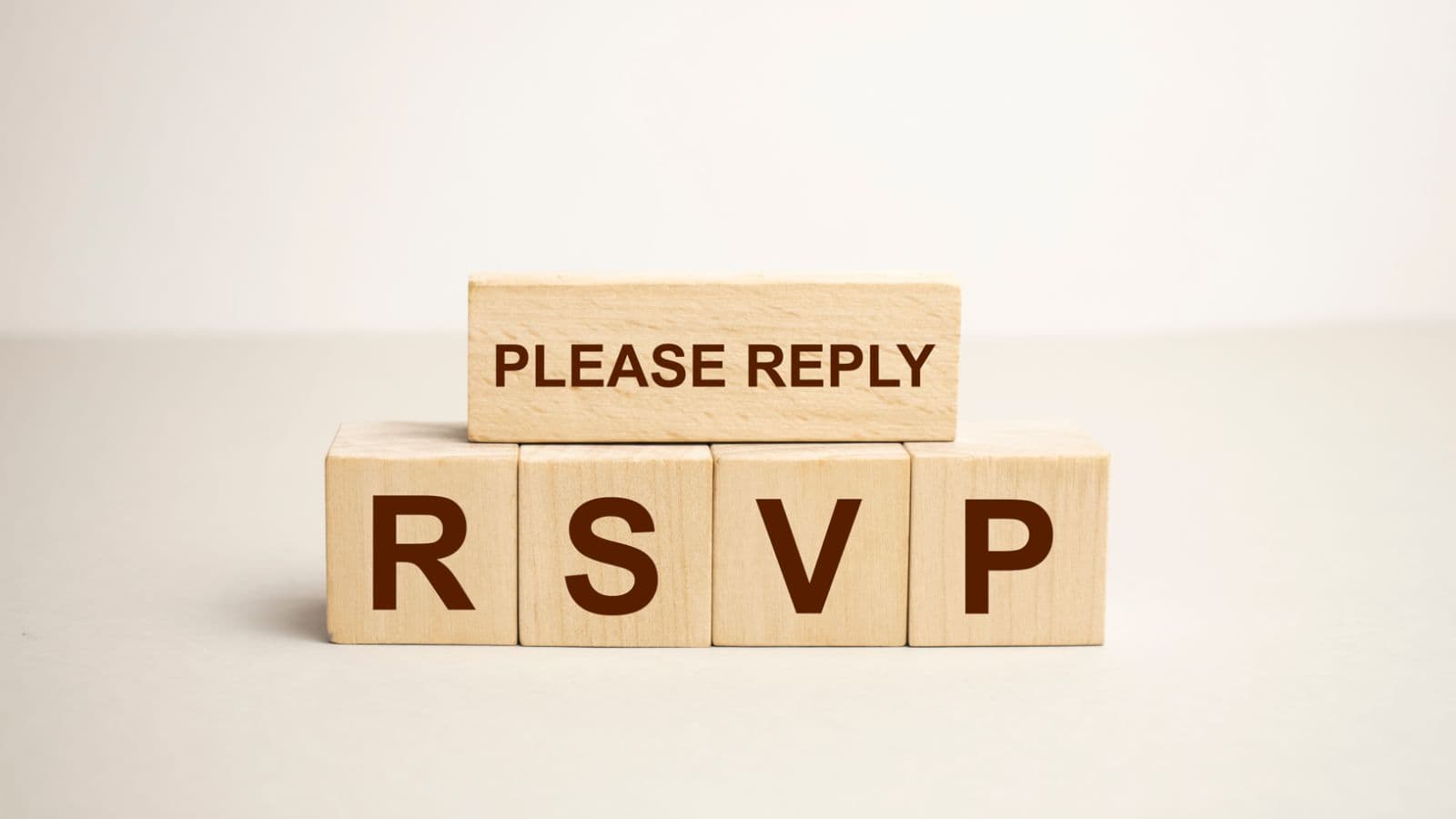
Remember that planning a funeral is often a time-sensitive and upsetting challenge for the dead person’s family, and you should aim to make the process as easy as possible for your part. If you receive a funeral invitation, RSVP as soon as possible, even if you’re unsure if you can attend. This helps the family with planning, like venue size, seating arrangements, and catering.
Wearing Casual Clothing
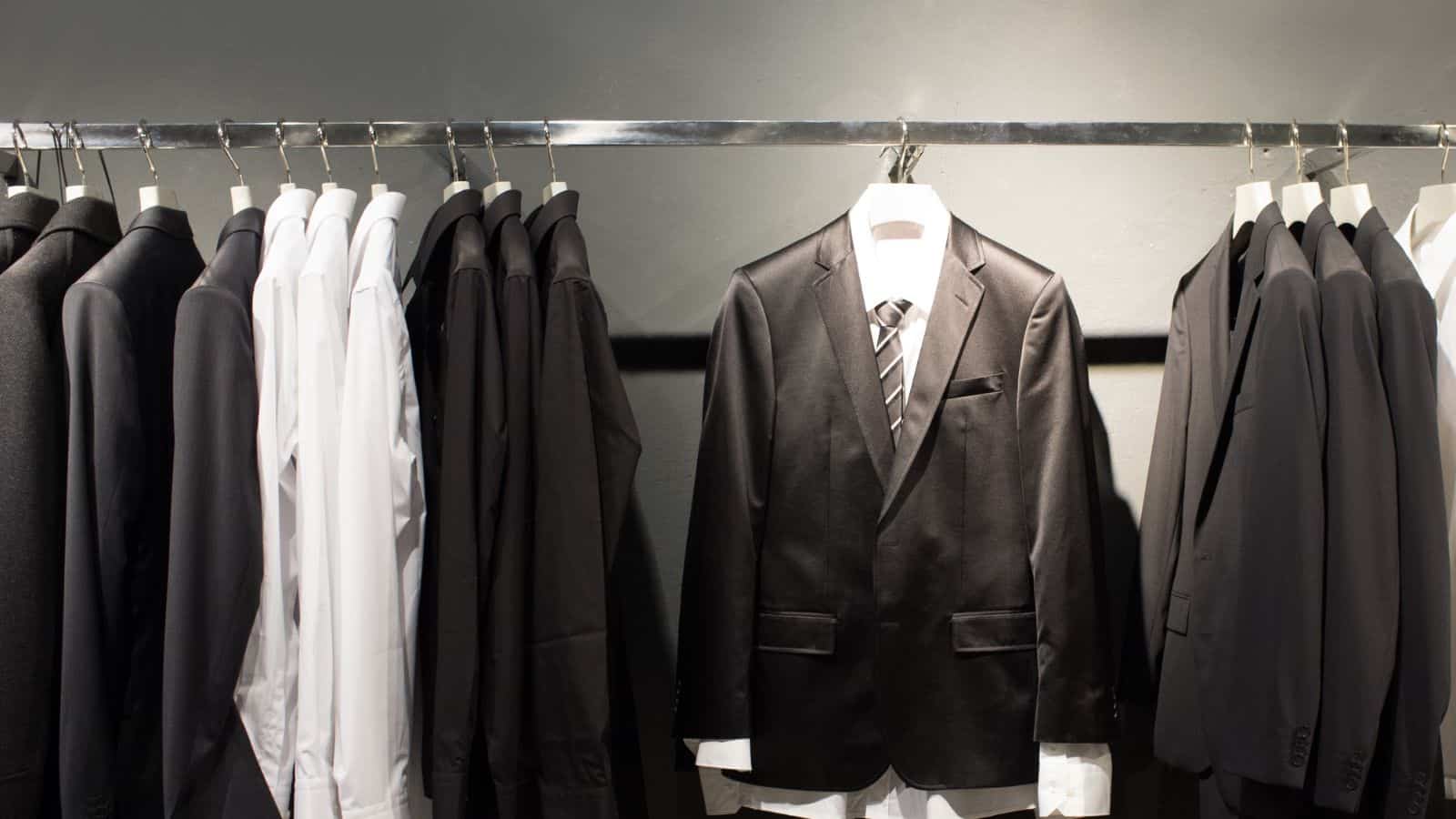
Stark Funeral says funerals are somber occasions, so dress modestly and respectfully unless the invitation specifically requests a color or theme to honor the deceased. Avoid anything too sporty, casual, revealing, or dressy, and try to stick to muted colors like gray, black, brown, and navy. If you’re unsure, err on the side of caution and go for something formal and plain.
Bringing Uninvited Guests

Unless specifically mentioned in the invitation, funerals are typically for close family and friends of the deceased. Unlike weddings, they don’t often include a ‘plus one’ because this is not a happy celebration. Avoid bringing uninvited guests without warning, especially those who don’t know the person or those who may be disruptive or disrespectful (like young children).
Arriving Late
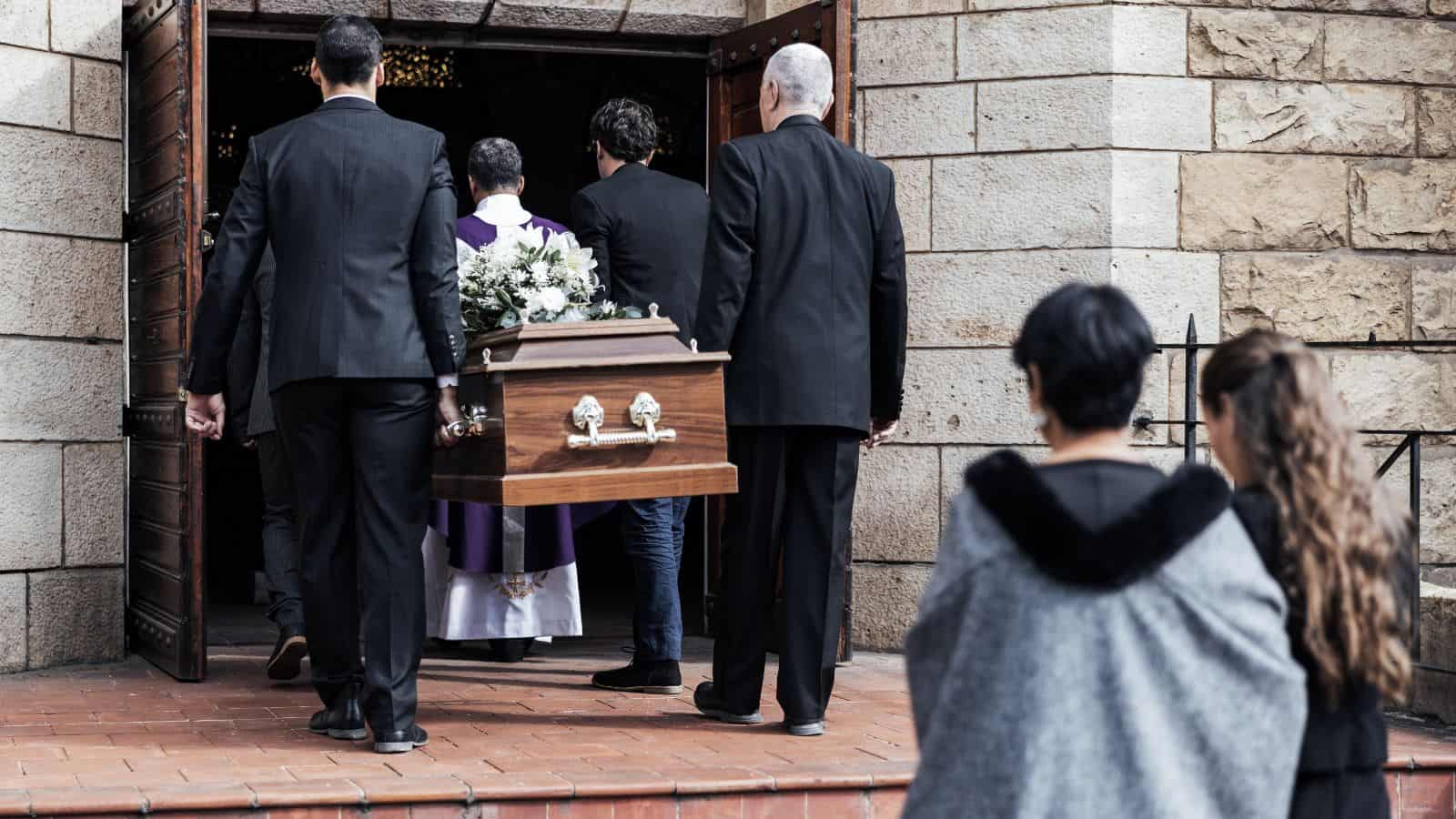
Tardiness is never good, but arriving late to a funeral can create unnecessary stress for the deceased person’s family, especially if they have concerns about the number of mourners. Plan to arrive at the funeral home or place of worship at least 15–30 minutes before the service begins, allowing time for any delays. This shows respect for the family and avoids disruptions to the service.
Talking

A funeral is a time for quiet reflection and listening to the eulogy or religious service, so talking is not permitted beyond a few hushed words and only if necessary. Turn off your cell phone or silence it, and refrain from checking your messages or texting during the ceremony. If you need to take an urgent call, sit at the back close to the exit and step outside discreetly to talk.
Inappropriate Social Media Activity

Be aware that funerals are not photo opportunities, and you should never take photos or videos or share them online without permission from the family. The Irish Independent criticizes the trend of taking tasteless ‘funeral selfies,’ calling them exploitative and socially unacceptable. Try to be respectful and sensitive, and never sensationalize or publicize anyone’s grief.
Eating

A funeral service is not the time to have a quick snack or eat your lunch, and you shouldn’t even chew gum unless you are 100% sure that it won’t cause offense. Doing something so casual and enjoyable may be seen as inappropriate and disrespectful. Instead, avoid all food and don’t distract others; focus on quietly and patiently observing the service.
Leaving During the Service

Unless there’s a genuine emergency or you need to remove a crying baby, it’s best to stay for the entire funeral service. Leaving early can be disruptive for other mourners, drawing their attention away from the important parts of the service. The family or the person speaking may find this disrespectful or even insulting and could even confront you later.
Forgetting to Sign the Guestbook

If a guestbook is available, take a moment to sign it and offer a message of condolence to the family. A personal message pertaining to a cherished memory of the deceased is ideal, but don’t feel under too much pressure. Even a simple “Thinking of you” or “With deepest sympathy” can be meaningful and show that you are aware of their grief and empathize.
Using Overused Phrases
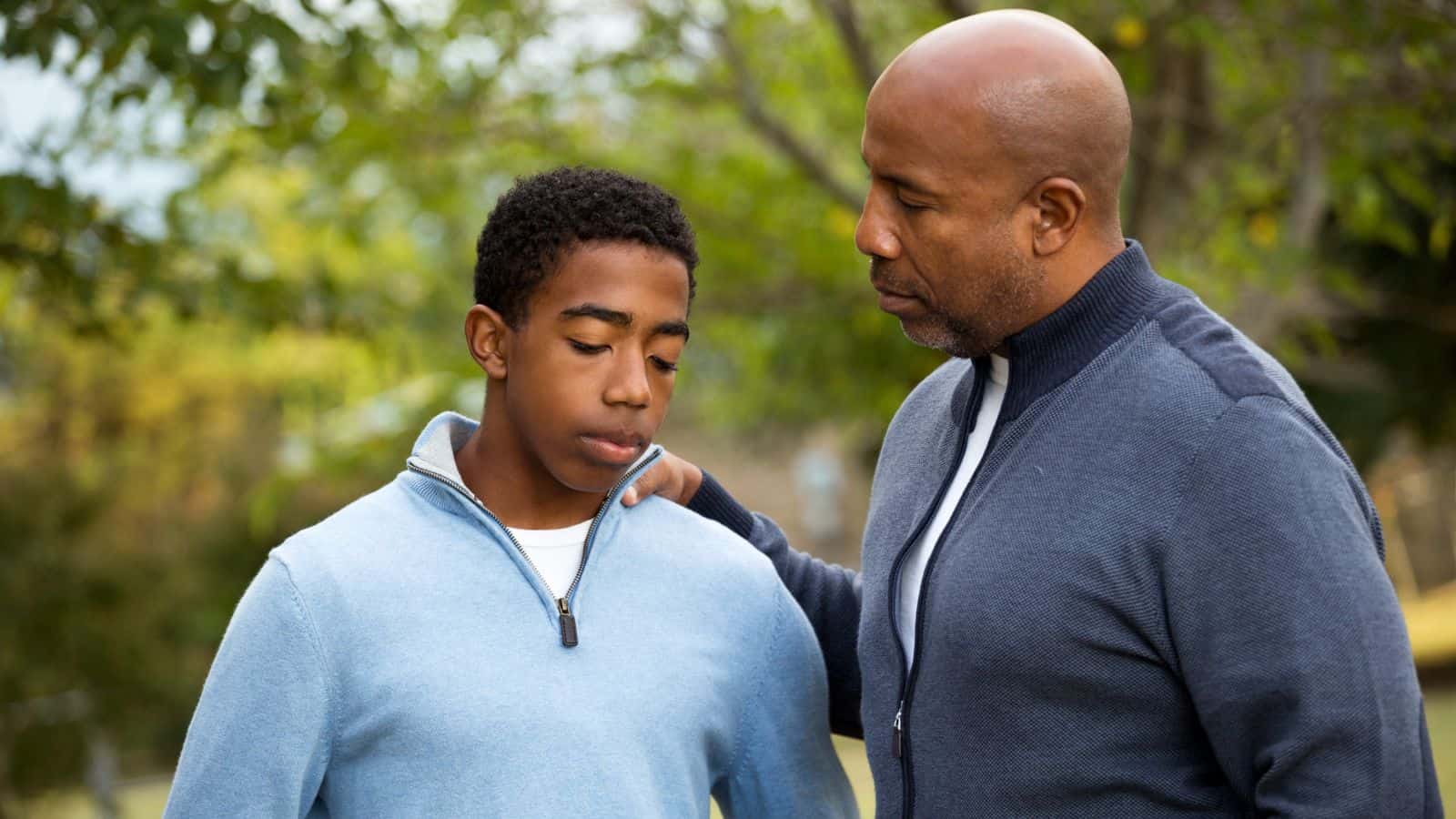
Knowing what to say to grieving family members can be very difficult, but that doesn’t mean you should reach for tired platitudes or meaningless phrases. Avoid saying things like “They’re looking down on you” or “They’re in a better place now” unless you genuinely believe it. Otherwise, a heartfelt nod of understanding or a small smile of encouragement can be enough.
Sharing Unwanted Personal Stories
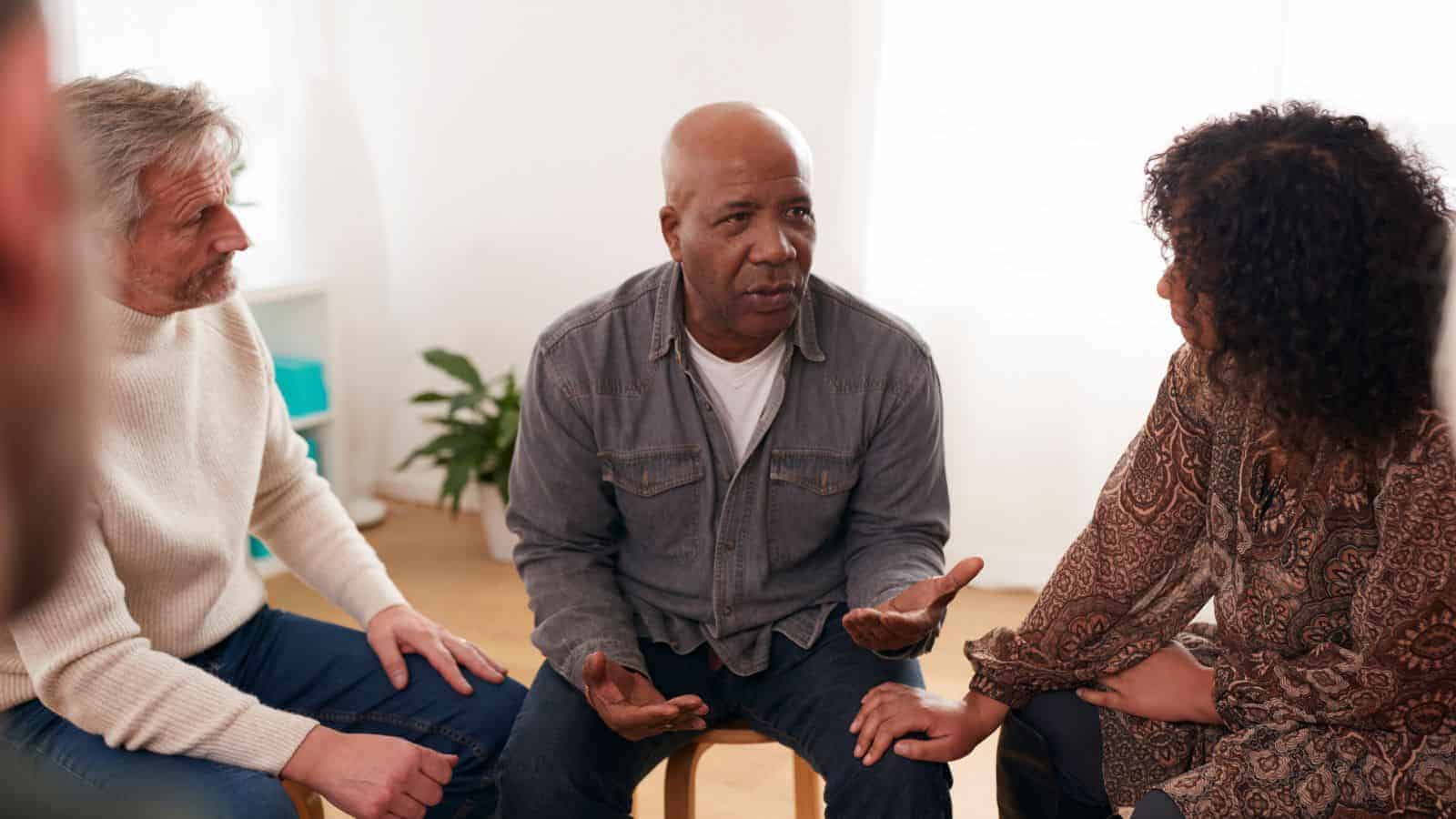
While honesty and genuine affection are great things, be selective about which stories you tell about the deceased person during their funeral. Georgia Cremation says, “Funeral guests often end up saying things that are inappropriate, hurtful or downright disrespectful,” and warns against any tales involving sexual encounters, past grudges, drunkenness, or illegal activity.
Pressuring People to Talk About Their Feelings

Everyone grieves differently, and you shouldn’t try to talk to anyone about their grief or personal feelings, no matter how well-meaning you are. If they start the conversation, it’s fine to participate and offer sympathy, but don’t ask prying questions or request macabre details. If someone is too upset to talk, a kind hug or a gentle arm squeeze is enough to show you care.
Offering Unsolicited Advice

Unsolicited advice is almost never a good thing, but a funeral is definitely not the place for such interference. Advising on how the funeral should proceed and how the family should grieve or handle legal issues or inheritance is entirely inappropriate and will only cause offense or social awkwardness. This is a difficult time for the family, and they won’t appreciate your unwanted suggestions!
Disappearing After the Service
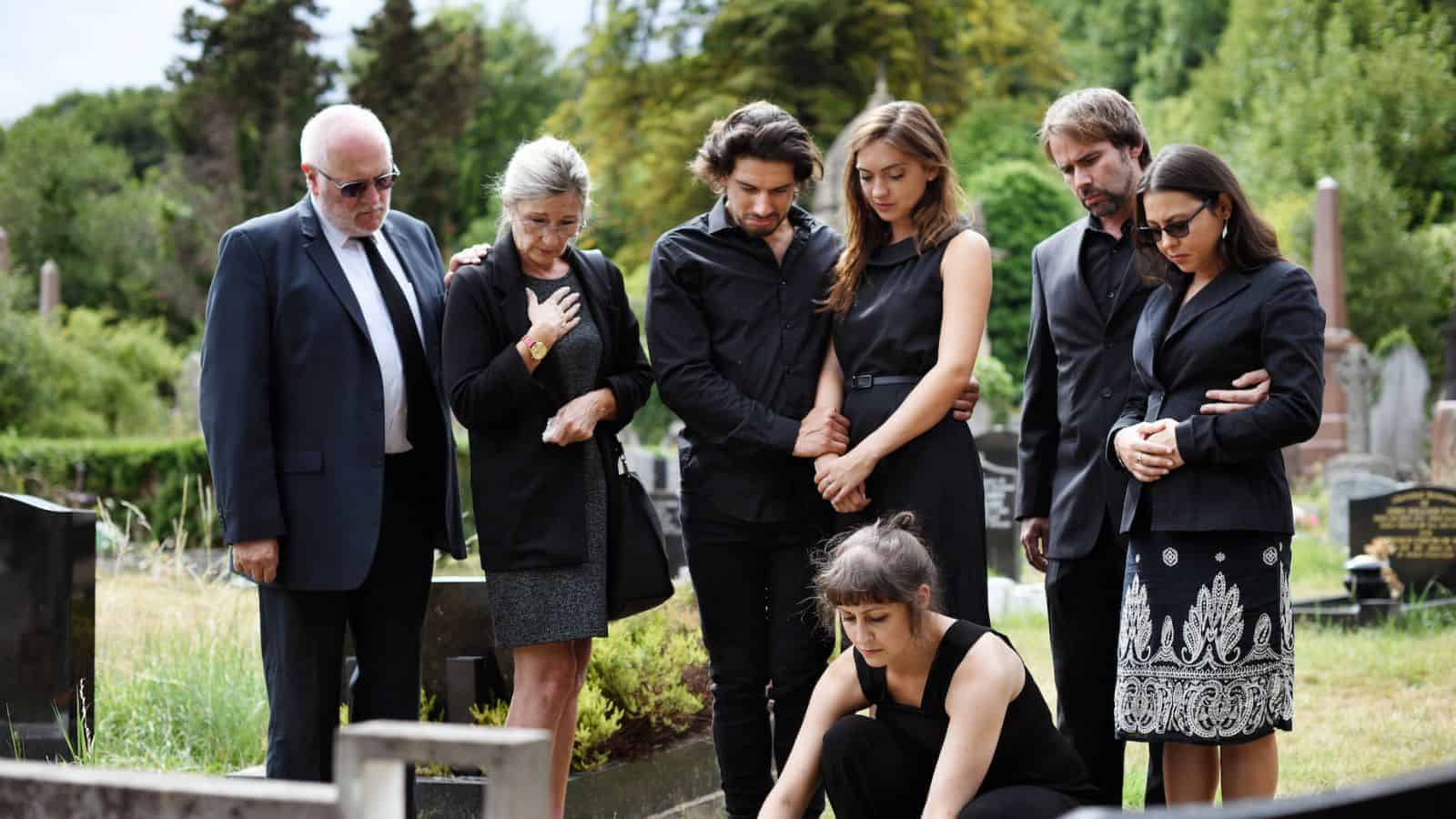
Someone has died, so unless you have an excellent excuse, don’t just show your face and then disappear. Try to attend the wake or, if you know the family well enough, offer your help or support after the funeral. Even small gestures like bringing a meal, helping with errands, or simply offering to listen can be a great comfort during their time of grief.
Forgetting to Send a Thank-You Note

It’s nice to send a thank-you note to the family, especially if you received a funeral program or other acknowledgment of attendance or the event was catered. It’s the perfect opportunity to show them that you haven’t forgotten about their loss and a great way to re-express your condolences and appreciation for their hospitality during such a difficult time.
Talking About the Deceased Negatively

It’s true that dying doesn’t suddenly turn anyone into a saint, erase their past bad behavior, or cancel out mistakes they made, but their funeral is neither the time nor the place to bring these things up. Trustworthy doesn’t recommend lying, but tact and sensitivity—focus on the aspects of their life worth celebrating and avoid being brutally honest about their worst traits.
Ignoring Friends or Family Members of the Deceased

A funeral is not an occasion for airing past grievances with living people, either. Try to leave any disagreements at home and acknowledge all the friends and family of the deceased, even those you don’t have a positive history with or know well. A funeral is an opportunity to focus on the dead person’s life and reconnect with distant acquaintances; it’s not a time for pettiness.
Up Next: 19 Signs That Say You’ve Officially Entered Old Age
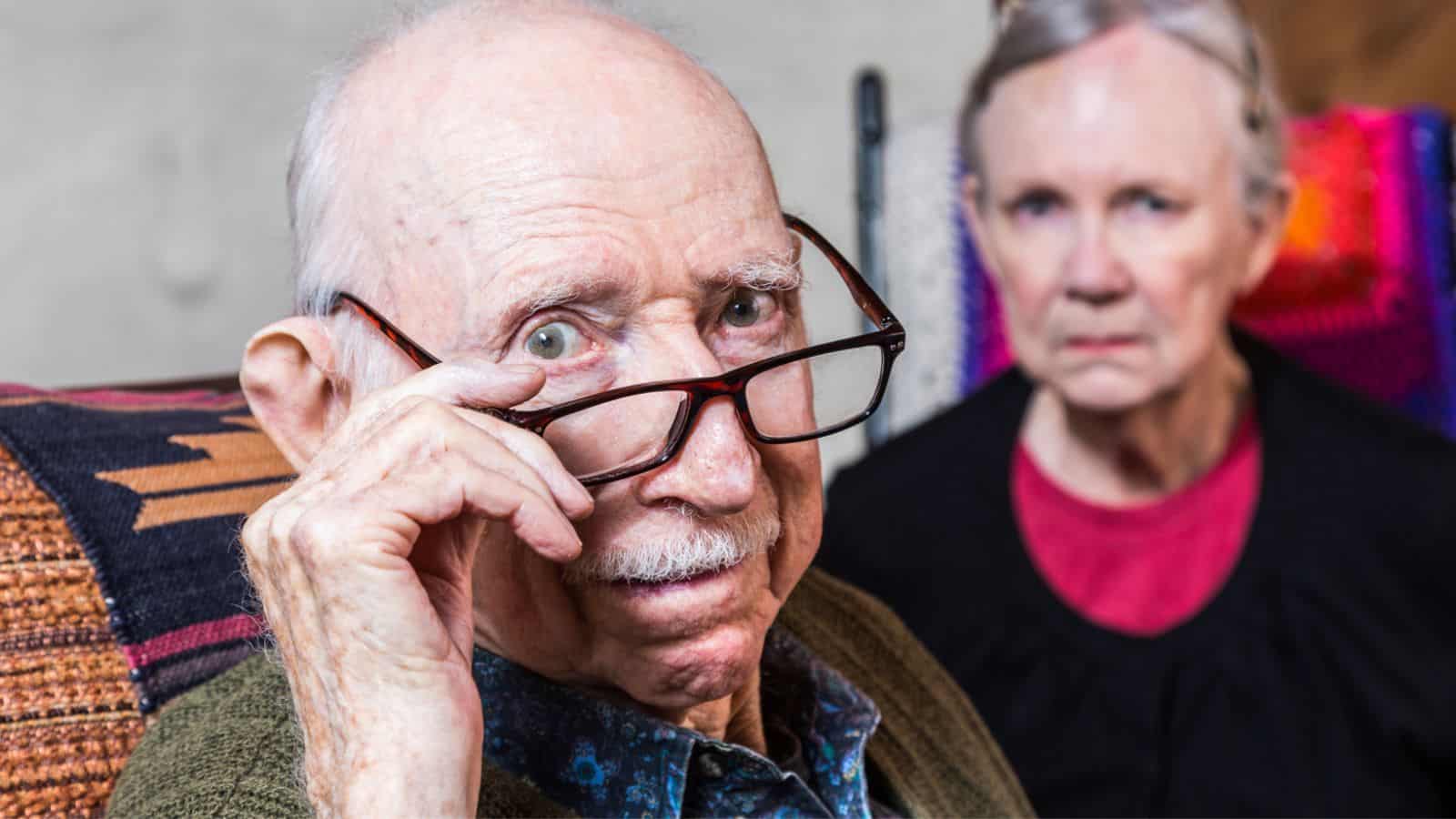
Old age comes for us all, though we do our best to resist it for as long as possible. But aging isn’t only gray hair, wrinkled skin, and yelling at kids to get off your lawn. Here are 19 signs you’ve realized you’re no longer the young stud you once were!
19 SIGNS THAT SAY YOU’VE OFFICIALLY ENTERED OLD AGE
17 Things That Are Too Woke For Boomers

Our society is so different from what it was decades ago, and boomers don’t like much of what everyone considers normal in today’s society. In this light, here are 17 things about ‘woke culture’ that particularly make boomers uncomfortable.
17 THINGS THAT ARE TOO WOKE FOR BOOMERS
17 Things You’re Just Too Old To Be Doing Anymore

The older you get, the more fragile you are physically and mentally, so it’s important to prioritize your well-being every day. Whether you still feel young at 50 or are closer to 80, we’ve compiled 17 things you’re too old to be doing anymore.
